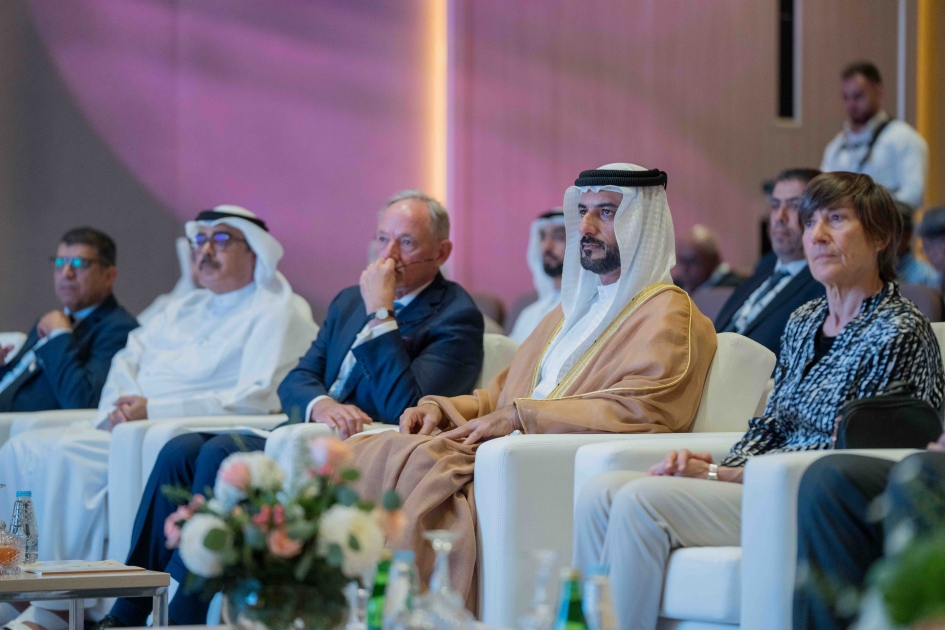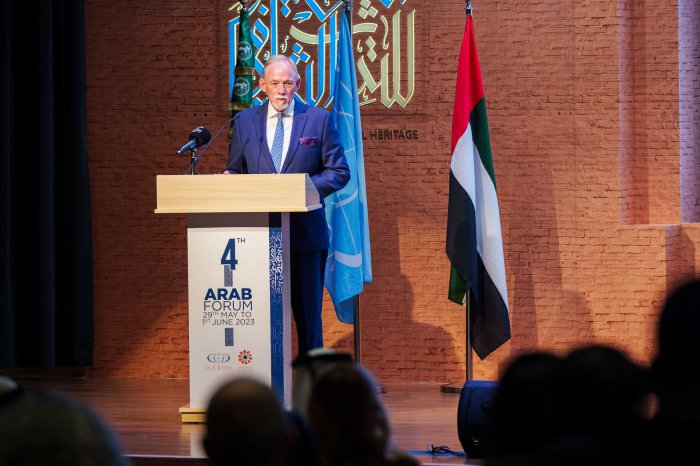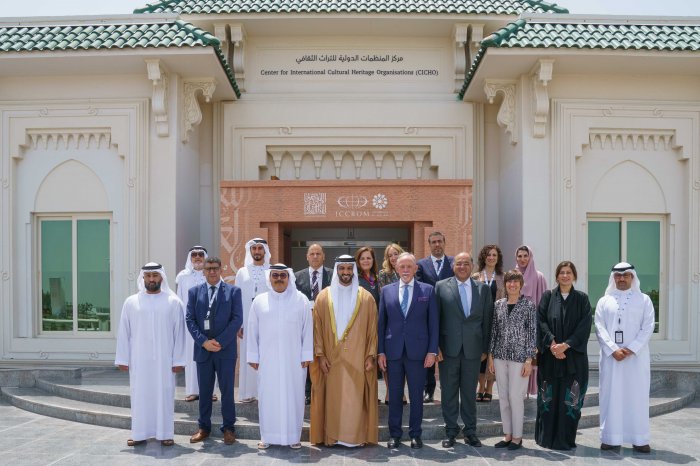
4th Arab Forum for Cultural Heritage begins in Sharjah
Under the patronage of His Highness Sheikh Dr Sultan bin Mohammed Al Qasimi, Member of the Supreme Council of the United Arab Emirates and Ruler of the Emirate of Sharjah, the 4th Arab Forum for Cultural Heritage (2023) launched its activities, today, in Sharjah, UAE.
The three-day forum, organized by the Regional Office for the Conservation of Cultural Heritage (ICCROM-Sharjah), in cooperation with the Arab League Educational, Cultural and Scientific Organization (ALECSO) and the Sharjah Institute for Heritage, will be held from 29 May to 1 June 2023 at ICCROM-Sharjah.
His Highness Sheikh Sultan bin Ahmed bin Sultan Al Qasimi, Deputy Ruler of the Emirate of Sharjah; Dr John Robbins, Chairperson of the Council of ICCROM; and a number of regional and international experts interested in the field of preservation of cultural heritage in the Arab region attended the opening ceremony. Also in attendance were several representatives of diplomatic missions in the United Arab Emirates, media professionals, and activists in the fields of built environment, culture and cultural heritage in the region.
The 4th Arab Forum for Cultural Heritage sheds light on communities' accumulated knowledge in sustaining cultural heritage in the Arab region, and explores ways to activate this role in crisis preparedness, response and recovery; supports efficient risk management practices; and promotes community-centred approaches to achieve adequate humanitarian response and a sustainable future for the region’s cultural and historical heritage. The forum will also serve as a platform for interdisciplinary conversations to increase the resilience of cultural heritage and its recovery as a result of conflicts and climate change.
Dr Zaki Aslan, Director of ICCROM-Sharjah, stressed the timely importance of this forum. “There is no doubt that the theme of the forum, which was decided this year after extensive discussion with our local, regional and international partners, is extremely in line with the current needs, directions and priorities of regional countries that contribute to the Sustainable Development Goals (SDGs). The forum is also aligned with the vision and mission of ICCROM-Sharjah expressed through our many projects and activities implemented since the establishment of this office under the patronage of His Highness the Ruler of Sharjah in 2012.”
Dr Aslan pointed out that this year's forum coincides with the ten-year anniversary of ICCROM-Sharjah. "More than ten years after its establishment, ICCROM-Sharjah has become a reference institution for the protection and promotion of cultural heritage in the Arab region. This has been achieved through regional activities that meet the needs and priorities of our Member States, and building bridges of communication and collaboration among them,” Dr Aslan added.
Dr John Robbins remarked, “We are here this week to probe the intersection of three important concepts in cultural heritage. One concept is very old — omran or, loosely translated, the built environment — and two concepts that are contemporary — resiliency and community-based care for cultural heritage.” He continued, “The concept of the built environment as cultural heritage has ancient roots in our religious, social and artistic values. The concepts of resiliency and community-based are very much of our own time, and this conference highlights the urgency of addressing the intersection of these three topics.”
The Director General of ALECSO, Dr Mohamed Ould Amar, echoed Dr Robbins, saying, “The topic of the forum reflects the importance of the results reached by research and related studies. It addresses one of the oldest concepts that humanity has known in organizing the forms of life and stability, the built environment (omran). It focuses on the theories, ideas and approaches around it, on top of which is the one that this forum addresses: the culture of the built environment (omran) and heritage resilience.”
Dr Abdulaziz Almusallam, Chair of the Sharjah Institute for Heritage, spoke about the close link between the topic of the forum and the Emirate of Sharjah's efforts to preserve and revive historical buildings and heritage sites through protection and restoration works that affected the emirate's landmarks, heritage houses, popular markets, mosques and schools. "This forum comes as an embodiment of Sharjah's vision in this regard, and in line with its directions in preserving urban heritage and reviving spatial memory, which contribute to providing urgent preservation of heritage monuments and buildings on the verge of collapse," he stated.
Dr Dena Assaf, United Nations Resident Coordinator in the United Arab Emirates, expressed, in her address to the forum, the importance of the concept of built environment and its relationship to cultural heritage. She added that cultural heritage is a powerful expression of our identity. “This year's theme encourages us to remember that the built environment is not merely physical structures; they are the embodiment of who we are, our traditions, aspirations and our collective being,” she said.
The opening ceremony concluded with a music performance by the Roots of Mosul, a youth band from Iraq concerned with reviving Mosuli musical heritage. A documentary film honouring ICCROM-Sharjah's tenth anniversary was screened, summarizing the journey and activities of the ICCROM-Sharjah office over the past decade.
The forum focuses on five main themes: the notion of built environments (Omran); the importance of culture of built heritage in enhancing communities’ role in sustaining cultural heritage; cultural preparedness as a tool for the resilience of heritage; community-based adaptation and culture-based resilience; and integrating sociocultural dimensions into cultural heritage policies to achieve cohesion, inclusiveness and equality while sustaining and preserving historic environments.
The activities of the first day included two main sessions. The first focused on omran and was chaired by Ms Maysoon Azzam with speakers Dr Tarek Waly, Dr Wael Samhori, Dr Bastien Varoutsikos and Dr Khalid Kchir. The second session, focused on the second theme, was chaired by Dr Claire Delton, with the participation of five key speakers - Dr Salman Almahari, Dr Mudhafar Salim, Dr Abdulhamid Fenina, Eng Lina Abu-Salim and Dr Abdulaziz Tour. The day concluded with an open discussion.
The activities of the forum will continue until Thursday, 1 June 2023. The forum will conclude its activities with a final session to present results and recommendations.




























